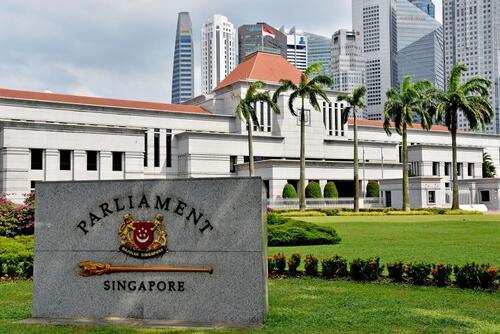Singapore passes law to counter foreign interference after 10-hour Parliament debate

Singapore passes law to counter foreign interference after 10-hour Parliament debate
After being under development for 3 years, in parliament for 3 weeks, and finally debated for 10 straight hours in Parliament, the Foreign Interference (Countermeasures) Act passed in Singapore on October 4th. The act is designed to give the government more power to combat foreign interference in local elections and came out of the 2018 Select Committee on Deliberate Online Falsehoods, prompted by the interference in the 2016 United States elections, among others. Primarily aimed at combating information campaigns, FICA allows the Singaporean government “to compel Internet and social media service providers to disclose information on users, remove online content and block user accounts.” Additionally, politicians must publicly declare if they are affiliated with any foreign entities, and any actions as a result of the act go through a tribunal appointed by the president, instead of the courts. The Minister for Home Affairs K. Shanmugam said that this choice is so that information does not leak out to the public. A court, he claimed, would “hand secret intelligence to suspects or their lawyers.” The critique of the tribunal, of course, is that it will operate like a black box.
FICA has in fact been one of the more controversial laws recently passed in Singapore. Various MPs have criticized it as lacking any checks or balances and having a high potential for abuse. The government notably does not deny these notions and instead just says that the danger of interference is greater than the potential for abuse. While the law’s definitions are nebulous, the lack of judicial involvement has been the key concern. The Leader of the Opposition Pritam Singh said during the debate that the act is designed to “completely displace natural justice from the oversight process.” Interestingly, however, Singh’s main concern was not what overreaching power the People’s Action Party would have, but what another group in power might do with it. This idea shows a very high level of trust in the ruling party, even from the opposition. Finally, the government’s claim that an “open, highly digitally connected and diverse society” is why Singapore is so at risk symbolizes the very idea and ethos of the city-state. It should be a diverse nation in all ways except thought in which the country and people must be entirely unified.
Sources: